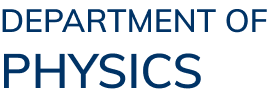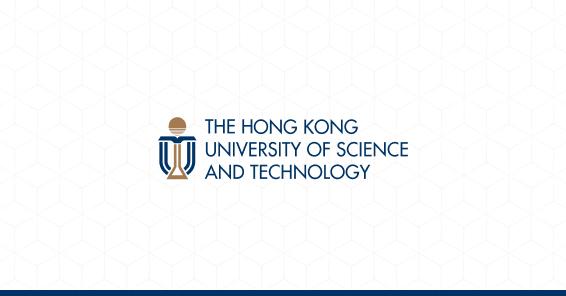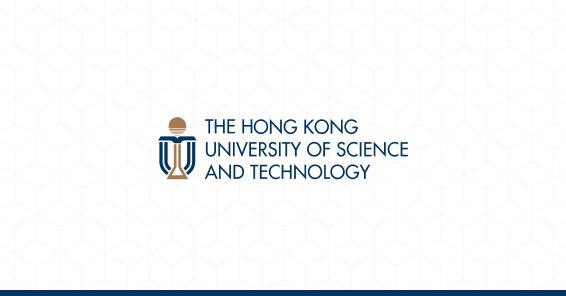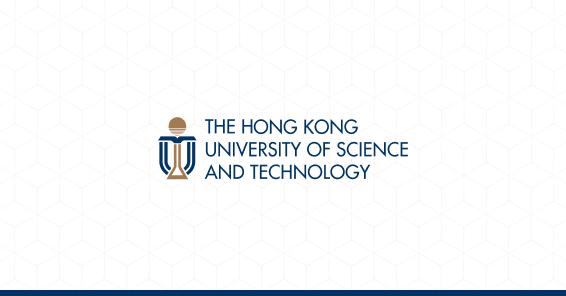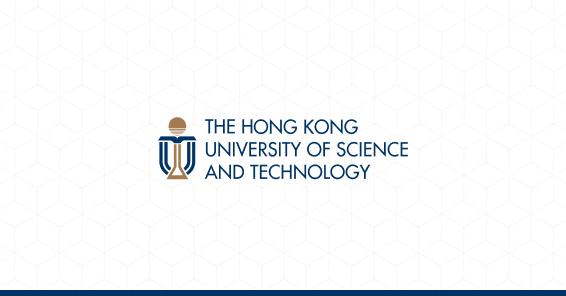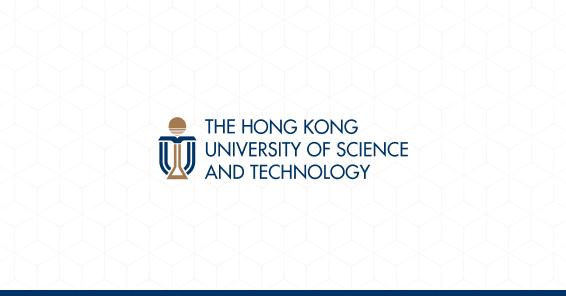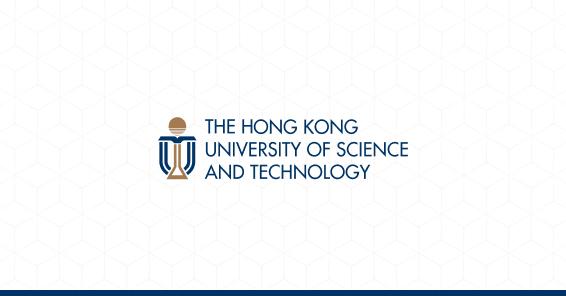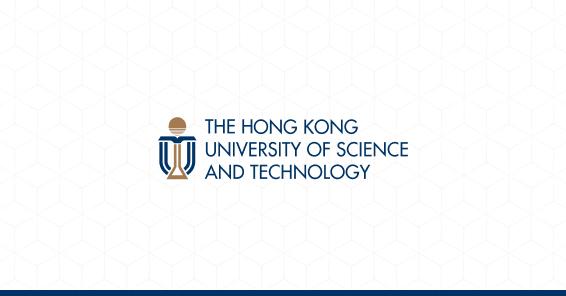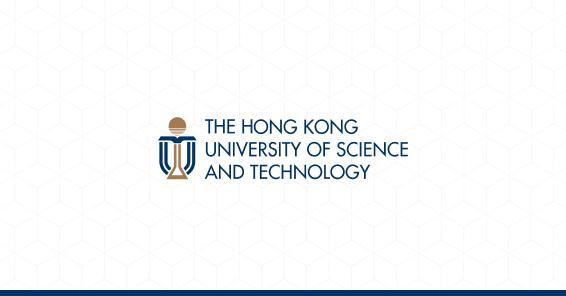News & Events
2007-12-11
Five Hong Kong University of Science and Technology (HKUST) professors and their teaching teams were honored today(11 December) with Teaching Innovation Awards for successfully introducing new ideas, techniques and practices in teaching.
HKUST President, Prof Paul Chu, presented the awards at the third Teaching and Learning Symposium, a biennial event to promote novel teaching and learning at the University.
The five winners are:
Prof Jogesh K R Muppala, Department of Computer Science and Engineering
His innovative use of Web 2.0 technologies, like Blogs and Podcasting, provides a useful mechanism for instructors in higher education to enhance their course content, by offering additional channels for information delivery to their students and enhancing collaborative and cooperative learning. For example, a blog can be used for delivering additional information like course announcements, links to interesting websites and articles relevant to the course. Podcasting is a means of delivering online recorded audio of classroom lectures to enhance the course materials.
Prof David P Rossiter & Team, Department of Computer Science and Engineering
Prof Rossiter employs a web-based voice tool, the Gong system designed primarily for use in education, especially language learning. This system allows people to communicate using text and voice over the Internet. Students and teachers can participate in different discussion boards in the system. Inside these boards they can leave text and voice messages and they can also listen to and reply to messages from other people on the boards. It offers great assistance to language learners worldwide.
Prof Mike K P So , Department of Information and Systems Management
Prof So has developed an innovative teaching methodology—Problem-based Learning with Constructive Alignment (PBL/CA) that maps learning objectives and teaching activities to learning outcomes. It demonstrates an excellent implemention of outcome-based education.
Prof Philip I K Sou & Team of the Department of Physics
Prof Sou has introduced a two-way learning method to nurture young researchers. He selected UG students to develop cutting–edge science and technology based on recent developments or inventions by faculty members. The research outcomes are used as teaching kits in existing courses and presented to secondary school students. Thus, students are advised by faculty and faculty are in turn inspired by students.
Mr Sean W J McMinn, Language Centre
Mr McMinn has fostered active learning with podcasting technology, providing a platform for students to practice English writing, listening and reading skills in a real life situation. Students and staff from all departments are invited to contribute stories, notices or comments to each podcast, to create an English-speaking community on campus.
The Teaching Innovation Awards is a biennial event that promotes novel teaching and learning at the University. At the Symposium, President Paul Chu presented the awards to the winners. The keynote speaker Prof Karl A. Smith, the Morse-Alumni Distinguished Teaching professor at the University of Minnesota, gave the keynote address on ” Designing Innovative Higher Education Programs : Insights from Research and Practice” to share his experiences of how to design courses and programs to ensure that they lead to enhanced student learning . Prof Karl A. Smith is a distinguished educator. He has been at the University of Minnesota since 1972 and is in phased retirement as Morse-Alumni Distinguished Teaching Professor.
The Teaching and Learning Symposium was co-organized by HKUST’s Senate Committee on Teaching and Learning and the Center for Enhanced Learning and Teaching (http://celt.ust.hk/). To coincide with the Symposium, an exhibition on teaching and learning initiatives is being held on HKUST campus from 5 to 15 December 2007.
Read more
2007-11-09
The Hong Kong University of Science and Technology (HKUST) held its 15th Congregation from 7-9 November, conferring 1,862 Bachelor’s, 1,317 Master’s, and 149 Doctoral degrees.
The final day Ceremony (9 November) was presided over by the Chief Executive of HKSAR Government and Chancellor of HKUST, the Hon Donald Tsang.
During this ceremony, the University conferred honorary doctorates on three distinguished awardees in recognition of their outstanding achievements and contributions. They are:
Prof the Hon Louis Cha, GBM, influential author and co-founder of Ming Pao: Doctor of Letters honoris causa
Dr William M W Mong, GBS, celebrated philanthropist and Chairman & Senior Managing Director of Shun Hing Group: Doctor of Business Administration honoris causa
Prof K Barry Sharpless, Nobel Laureate in Chemistry: Doctor of Science honoris causa
The Congregation also saw other University awards presented for outstanding achievements.
Prof Pak-Wo Leung, Associate Professor of Physics, received HKUST’s highest accolade in teaching, the Michael G Gale Medal for Distinguished Teaching. Prof Leung is honored for his dedication, passion and commitment to professional teaching as well as his care for students’ academic and personal growth.
This year’s Stephen Cheong Kam-chuen Medal for Distinguished Service to the Student Body was awarded to Li Lok Wai Enrico, President of the 14th Session of Students’ Union. He devoted himself to organizing a series of forums on campus life and current affairs. Under his leadership, he and his executive committee members organized visits to their counterparts in other Asian universities to promote culture exchange.
“My Most Influential Teacher Award” was presented separately to the late Mr Francis Kong, former English teacher of Wah Yan College, Kowloon, and Miss Leung Siu Yin, teacher of World History and Chinese History at Carmel Pak U Secondary School. The selection for the award is based on votes by students in the graduating class who are invited to nominate a full-time secondary school teacher with strong positive impact on their lives and studies.
The 15th Congregation has expanded the ranks of HKUST alumni to around 30,000 since the University’s establishment in 1991.
Read more
2007-11-02
HKUST Physics Professor Wen Weijia and his research team have pioneered the development of foldable paper-like electronic displays. The device can be bent or wrapped around a column like a piece of paper for a wide range of commercial or industrial applications.
Measuring about one sixth of the thickness of a credit card, the break-through device is made by embedding conductive wiring patterns into thermochromic composite films. With its thermochromic quality, the images produced are clear and the color displayed can be tuned, reversed or repeated by varying the temperature.
Speaking at a press conference today (November 2), Prof Wen remarked, “Light weight and portable display technologies have been developed and applied to electronic gadgets including mobile phones and digital cameras, but most of them use LCD technology which can become very expensive as the size of the display increases.”
“The thickness of our device is just 150 microns, it is easy and inexpensive to manufacture and use relatively less power. The technology can be conveniently applied to large electronic display panels including signage, buses’ destination display screens and mark display panels with lower costs.”
“Due to the flexibility of the display material, the displays can be folded for easy transportation and storage. A large display screen can be rolled into a cylinder shape for transportation to the display location.”
Other potential applications of the device include electronic billboards, smart windows, color filters, temperature sensors or even e-books.
The team’s achievements have been widely published in prestigious international journals including Advanced Materials and Applied Physics Letter. In the process of having this display technology patented, they are seeking to identify interested parties so that the technology can be further developed for industrial and commercial application.
Read more
2007-07-17
HKUST President Prof Paul Chu has been appointed to the US President’s Committee on the National Medal of Science to select and recommend to the US President the recipients of the highest honor for scientific achievement in the US.
Prof Chu is the few Chinese scientists ever to be appointed to the President’s Committee since the establishment of the National Medal of Science by the US Congress in 1959.
Hailed as the United States’ equivalent of the Nobel Prize, the National Medal of Science is awarded by the US President on an annual basis to honor the contributions made by outstanding scientists who have significantly advanced knowledge in the fields of physics, biology, mathematics, engineering, and sociology and other behavioral sciences.
Prof Chu’s appointment to the President’s Committee, announced by the White House on June 21, is for a term of three years ending December 2009. The President’s Committee comprises 12 members who are outstanding scientists and engineers from a variety of disciplines in the natural and social science.
“The medal is to recognise the best scientists from across the US, and I am deeply honoured to be given the opportunity to play a part in recommending the recipients,” Prof Chu said.
Prof Chu is himself a recipient of the National Medal of Science in 1988 for his scientific breakthrough in high temperature super-conductivity. He was also named the Best Researcher in the United States by US News and World Report in 1990.
Out of a total 425 National Medal of Science laureates, nine are of Chinese descent, including:
Chen-Ning Yang (1986);
Yuan-Tseh Li (1986);
Yuan-Cheng B Fung (2000), the “Founder of Modern Biomechanics”;
Shing-Tung Yau (1997), winner of the Fields Medal,
Alfred Y Cho (1993), the “Father of Molecular Beam Epitaxy”;
Tung-Yin Lin (1986), one of the greatest structural engineers of his time;
Shiing-Shen Chern (1975), a leading differential geometer of the twentieth century; and
Chien-Shiung Wu (1975), the “First Lady of Physics”
Read more
2007-06-05
As a leading institution of higher education, the University of Science and Technology has dedicated itself to nurturing young talents in research in a wide range of disciplines. To arouse Physics students’ research interest during their undergraduate studies, Prof Paul Chu, President of HKUST and his wife Mrs May Chu have made a donation of HK$ 1 million to honor Physics students with outstanding research potential.
The Presentation Ceremony of “Paul & May Chu Research Awards for Physics Students” was held today (June 5) on HKUST campus. President Paul Chu presented cheques of HK$50,000 each to two winning students, Mr Hong Xiaoping (Year 1) and Miss Ho Cheuk Ting, Cherry (Year 3). Also present at the ceremony were Prof Roland Chin, Acting Vice-President for Academic Affairs, Prof S Y Cheng, Dean of Science, Prof Ping Sheng, Head of Department of Physics and members of the Awards Committee.
Speaking at the ceremony, President Paul Chu congratulated the two winning students and also gave them some advice for their future career path. “Life is about opening yourself to new experiences. Don’t be afraid to take risks. As one physicist to another, I hope that this little award will give you the extra push for a great career in Physics. I hope to see your names among great scientists one day,” President Chu said.
The research projects of the two winning students earned unanimous commendation from members of the Research Awards Committee made up of professors of the university’s Physics Department. Mr Hong’s research studies the optical properties of “InGaN/GaN Multiple-Quantum-Well Light Emitting Diode”. This device is highly efficient compared with other LEDs and the result can be helpful to the study of energy-saving and optical applications.
The other winner, Miss Cherry Ho, carries out research in the study of “Photonic Force on One Dimensional Photonic Crystal”. In her study, she believed that photonic crystal could control the flow of light while at the same time carrying energy as a force on the interface between materials with different refractive indices. Miss Ho focused on the study of how the flow of light would change the structures of the materials.
Prof Michael Wong, Chairman of the Research Awards Committee, said that the standard of candidates was very high, with some of the research papers even reaching postgraduate level. “I hope that the award can arouse undergraduate’s interest in conducting scientific research and help nurture talents at a younger stage,” Prof Wong said.
Read more
2007-03-28
Two distinguished scientists from the Hong Kong University of Science and Technology are today (Wednesday) awarded Croucher Senior Research Fellowships for their breakthrough research in advanced materials and nano-technology.
Prof Ben Zhong Tang, Professor of Chemistry, and Prof Zikang Tang, Professor of Physics, are among the eight scholars to receive this year’s Croucher Senior Research Fellowship Awards.
Prof Ben Zhong Tang’s research focuses on advanced materials based on new molecules and macromolecules constructed from acetylenic triple-bond building blocks. His findings on the structural design of the building blocks, the development of new polymerization reactions and robust polymerization catalysts are the key to making molecules technologically useful as specialty materials.
His research work not only contributed to basic research but is also directly related to the development of new plastics with advanced materials properties for industrial application. In particular, the research on the luminescent and photoresponsive molecules has strong potentials of developing into new materials for industrial use.
Prof Tang has published over 200 research papers and his findings have been widely cited by the peers for 2700 times. He was listed as one of the most cited chemists and materials scientists by the Institute for Scientific Information. He was also awarded the Distinguished Young Scholar Award by the National Science Foundation in 2002.
“The motivation behind my work is my passion for research. I have been devoting much of my time, energy and efforts to my research work for many years,” Prof Tang shared his secrets of success.
Prof Tang received his PhD from Kyoto University in 1988. Before joining HKUST as an Assistant Professor in 1994, he did postdoctoral work at the University of Toronto and research work for the Central Research Laboratories of Neos Co. Ltd.
The other Croucher Fellowship recipient, Prof Zikang Tang, along with his colleagues, succeeded in 2000 in fabricating the single-walled carbon nanotubes (SWNTs) measuring only 0.4 nm in diameter, or 75,000 times narrower than a single human hair, representing a theoretical limit for the size of single-walled carbon nanotubes. They also achieved what previous research has failed-in producing nanotubes that are highly aligned and uniform in size. The discovery of the carbon nanotubes exhibiting superconductivity below 15 degree K (i.e. minus 258 degree C) came after the record breaking success in the following year.
The discoveries were highly recognized by top scientific journals and widely covered by the media for their significance in paving the way for exploration of carbon nanotubes’ optical and electrical properties, as well as opening up tremendous prospects for nanotube applications. In 2003, Prof Tang was honored with the Second Prize of State Natural Science Award for discovering room-temperature UV lasing based on high-quality nano-structured ZnO semiconductors. In 2004, he was awarded the Outstanding Overseas Chinese Young Scholar and appointed as Overseas Expert Assessor of the Chinese Academy of Sciences.
"The motivation of our research is to shed light on unexplored area of nano science, and to explore new properties and functions of the novel electronic systems for nano technology applications.” He said.
The Croucher Fellowship recipients with Prof Chen Ning YANG Prof Tang earned his PhD at Tohoku University in 1992. He was previously a Post Doctor Fellow at the Physical and Chemical Research Institute (RIKEN) in Japan. He joined HKUST as an Assistant Professor in 1994.
Prof Chen Ning Yang, Nobel Laureate in Physics, presented the award certificates to the Fellows at a ceremony held by the Croucher Foundation today (28 March 2007).
Read more
